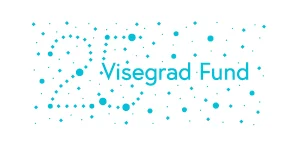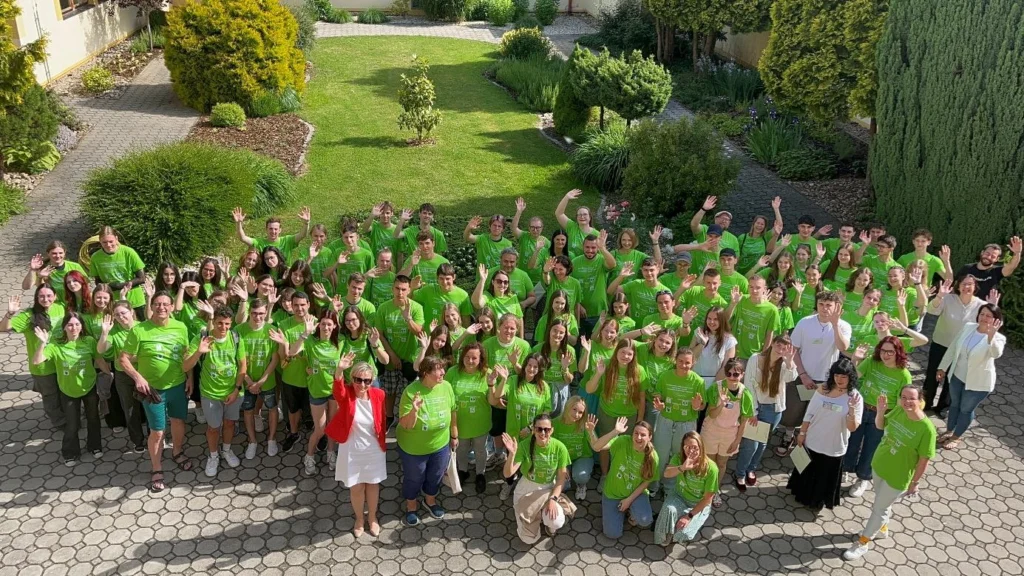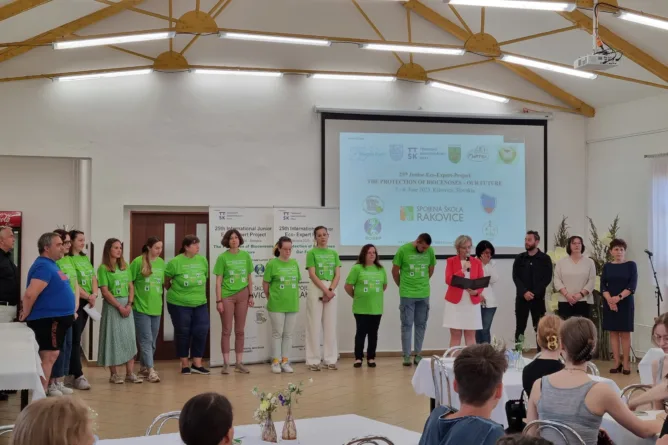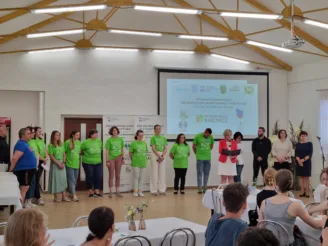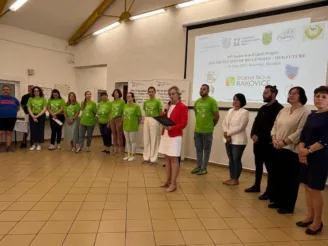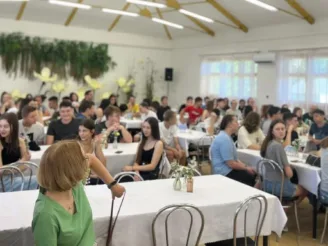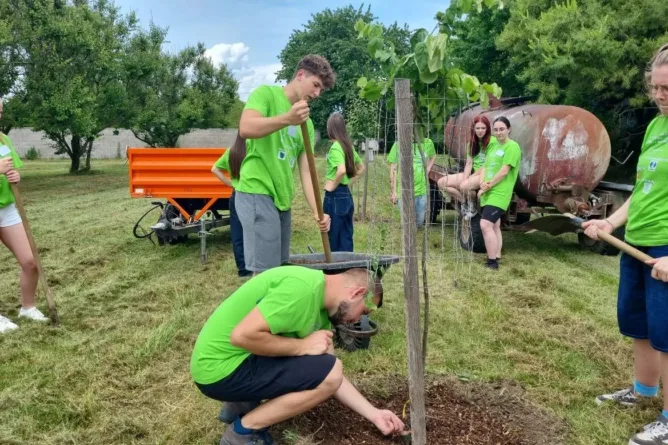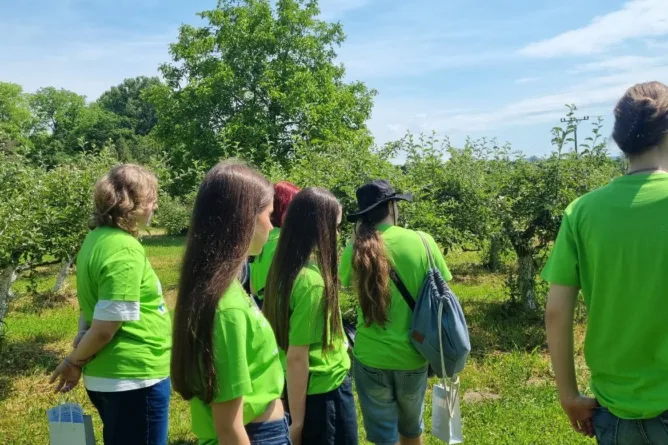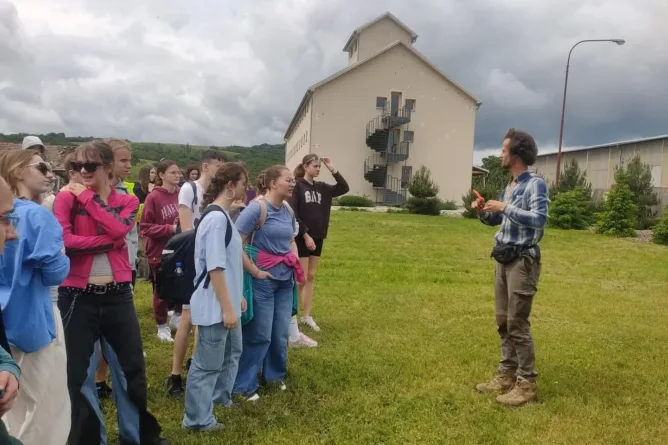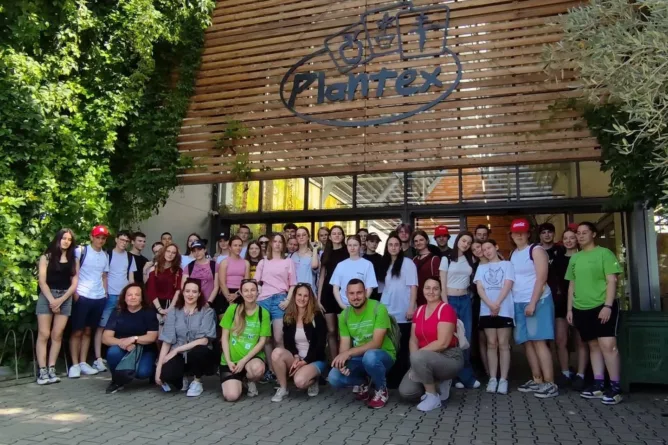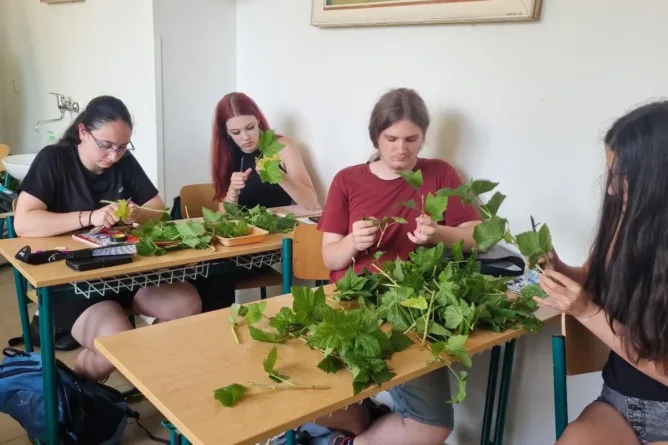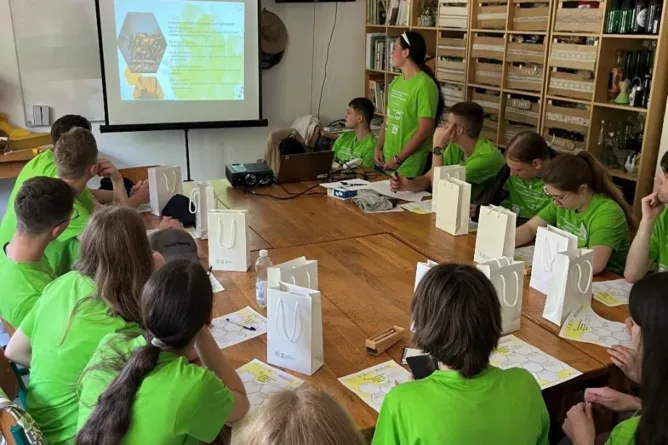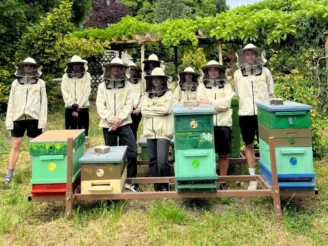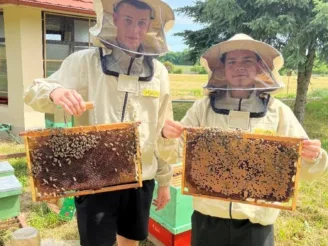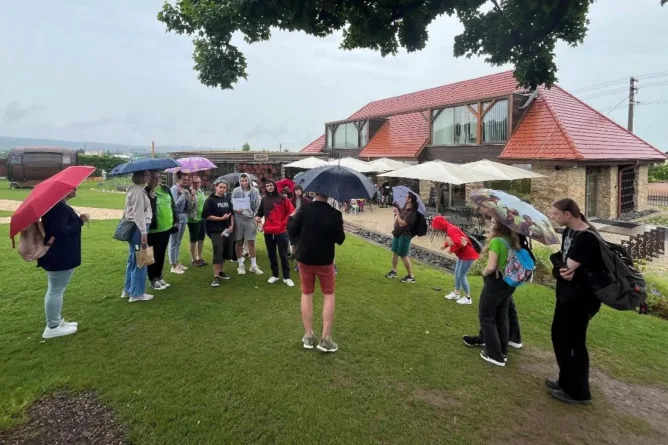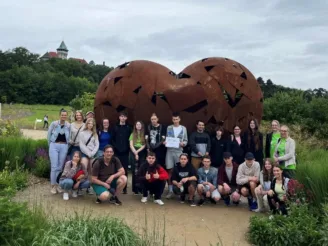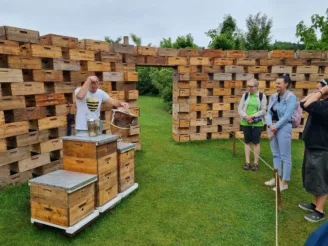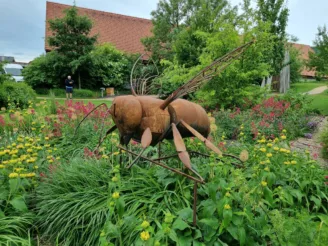21st Junior Eco-Expert Project Ecologically
21st Junior Eco-Expert Project Ecologically
Aware People – a Hope for the Future
3 June – 6 June 2019, Cieszyn, Poland
The 21st Junior Eco-Expert Project entitled ” Ecologically Aware People — a Hope for the Future” was organised between 3rd and 6th June 2019 in Cieszyn. 90 students with teachers from the five partner schools took part in it. The students were divided into five international groups. For the first two days the students participated in workshops and field trips related to the topic their group dealt with. They collected data which they later discussed and analysed to make presentations of their group work.
- Group 1 – Protection of biodiversity in the mountainous region. The students learnt about the problem of dying spruce monocultures and about the influence of climate changes on the condition of the forests. They visited the Wyrchczadeczka Carpathian Gene Bank in Jaworzynka, learnt about acquiring the seeds of the Istebna spruce and the reintroduction of the endangered capercaillie. They also visited the Regional Centre for Ecological Education in Ustroń, learning about planning afforestation in the endangered regions.
- Group 2 – Mineral resources and impact of their exploitation on the region. The group visited a limestone quarry in Leszna Górna and learn about its influence on the environment. They also visited a memorial room of an Auschwitz sub-camp in Goleszów. By the man-made lake in Goleszów they learnt about the properties of the unique Cieszyn oil shale and admired the biodiversity around the lake.
- Group 3 – Sustainable exploitation and use of brine. The group visited the commune office and the graduation tower in Dębowiec and learnt about the influence of a brine well on the development of the community. During a visit to a pump room, a brine swimming pool and a graduation tower in a spa in Ustroń the students learnt about brine exploitation and its recycling to its natural deposits. Later they also swam in the pools.
- Group 4 – Protection of water. The students visited company Emi, which provides complete solutions for industrial waste water treatment. During a visit to a fire station in Cieszyn they gained information on the influence of climate change on water levels. The group went on a field trip to the source of the Olza River, learnt about the dependence between the forest and water, collected samples to compare with the samples from the Olza in Cieszyn. At the ski resort ”Złoty Groń” they were informed about the use of water from the Olza for snowmaking.
- Group 5 – Ecological methods of animal keeping. The students gained knowledge on using environmentally friendly animal keeping methods as an alternative to intensive animal farming during a visit to a family company using ecological methods of processing sheep products in Istebna. They also visited the “Little Beehive Farm”in Dzięgielów, where they learnt about beekeeping and the impact of climate change and of pesticides on bee populations.
On the 5th June the students took part in the School Picnic and Sports Day, which gave the project’s participants a chance not only to integrate with each other, but also with other pupils of the school. During the Closing Ceremony, on 6th June, the participants of the project presented the results of their group work in the form of presentations. Each school also showed cultural programmes promoting their region and country. The head teachers of the partner schools and representatives of the local authorities and educational institutions from Cieszyn and the partner towns were invited to the ceremony. The implementation of the project was possible thanks to the financial support of the International Visegrad Fund and the Cieszyn District Authority.
Junior Eco-Expert Project has been organised annually for 21 years. It has enabled students to learn about various ecological issues of their respective countries. This year the project will be hosted by Szybinski Secondary school in Cieszyn.
Every year a group of 20 students and two teachers participate in the workshops organised by one of the partner schools: from Yspertal in Austria, Veseli nad Luznici in the Czech Republic, Tokaj in Hungary and Cieszyn, Poland. This year students from Piešťany in Slovakia will also join the project.
One of the objectives of the 21st Junior Eco-Expert Project is to provide the students with more in-depth information on good environmentally – friendly practices in all partner countries and the Cieszyn region. Helping them improve eco-friendly habits in their families and promoting sustainable nature conservation in the region will help educate a conscious generation that strives at preserving and restoring the environment.
The students are going to work in five international groups. Each group will deal with another issue.
Groups
1. Protection of biodiversity in the mountainous region.
2. Mineral resources and impact of their exploitation on the region.
3. Sustainable exploitation and use of brine.
4. Protection of water.
5. Ecological methods of animal keeping.
During the closing ceremony students will present the results of the group work. The students will also present cultural programmes promoting their country, region and school.
The head teachers of the partner schools and representatives of the local authorities from all the partner towns will be invited to the ceremony.
The implementation of the project is possible thanks to the financial support of the International Visegrad Fund and the Cieszyn District Authority.
Links:
https://www.szybinski.cieszyn.pl/eco-project
https://www.visegradfund.org/
Ekologicky uvědomělí lidé – naděje pro budoucnost
3. – 6. června 2019, Cieszyn, Polsko
Eko-expert projekt je každoročně organizován už 21 let. Umožňuje studentům naučit se něco o různých tématech, vztahujících se k ekologii v jednotlivých zemích. Tento rok bude projekt hostit Szybinski střední škola v Cieszyně.
Každý rok se skupina 20 studentů a 2 učitelů účastní workshopů na jedné z partnerských škol: v Yspertalu (Rakousko), ve Veselí nad Lužnicí (Česká republika), v Tokaji (Maďarsko) a v Cieszyně (Polsko). Letos se k projektu připojí také studenti z Piešťan na Slovensku.
Jedním z cílů 21.Eko-expert projektu je poskytnout studentům podrobnější informace o postupech/technologiích přátelských k životnímu prostředí, a to ve všech partnerských zemích a v regionu Cieszyn. Pomůžeme studentům zlepšit ekologické návyky v jejich rodinách a propagovat trvale udržitelnou ochranu přírody v regionu – toto pomůže vzdělat uvědomělou generaci, která bude usilovat o ochranu a zlepšení životního prostředí.
Studenti budou pracovat v pěti mezinárodních skupinách. Každá skupina se bude zabývat jedním z následujících témat:
1. Ochrana biodiversity v horské oblasti
2. Zdroje minerálů a vliv jejich těžby na region
3. Trvale udržitelná těžba a využívání solanky
4. Ochrana vody
5. Ekologické metody chovu zvířat
Během závěrečného ceremoniálu budou studenti prezentovat výsledky práce ve skupinách. Studenti budou také mít kulturní vystoupení, které bude propagovat jejich zemi, region a školu.
Ředitelé partnerských škol a zástupci místních samospráv ze všech partnerských měst budou pozváni na závěrečný ceremoniál.
Realizace tohoto projektu je možná díky finanční podpoře International Visegrad Fund a Okresního úřadu v Cieszyně.

